People
‘You Don’t Have to Go Where Everyone Else Is Going’: How the Cultivist’s Joey Lico Spends Her Art-Filled Summers
From Mexico and Sharjah to Chicago and Sonoma, Lico shared her discoveries from the international art scene.
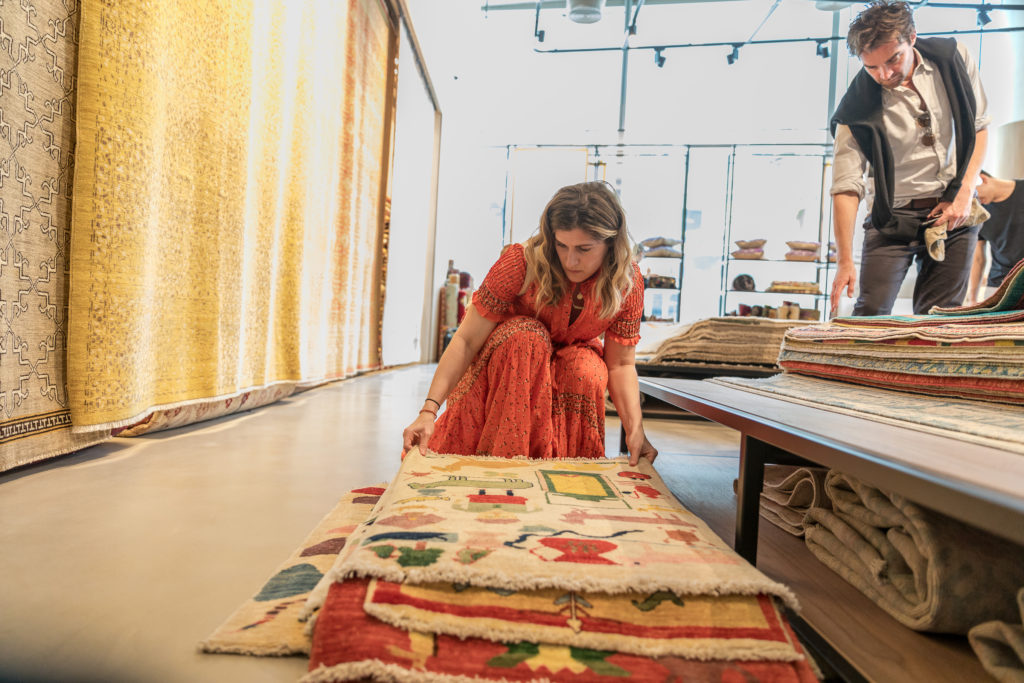
From Mexico and Sharjah to Chicago and Sonoma, Lico shared her discoveries from the international art scene.

Sarah Cascone

Joey Lico’s job as the global curator and senior director of the members-only arts club the Cultivist keeps her constantly on the move. While most people dream of unhurried summers at the beach, Lico jet-sets around the world to see thought-provoking, often politically charged contemporary art—and she wouldn’t have it any other way.
During a rare moment of downtime back home in Los Angeles, we caught up with Lico before she was set to leave on a trip to Puerto Escondido and Oaxaca to talk about her recent trips, the best art she’s seen this summer, and what makes traveling for art worth it. Here’s what she had to say.
How much of your travel this summer has been for work, versus for fun?
I’m a curator—even when it’s for fun, it’s work. We’re constantly researching and trying to see new things. At the Cultivist, we’re always trying to expand the horizons of our membership, so that means challenging our own horizons, too.
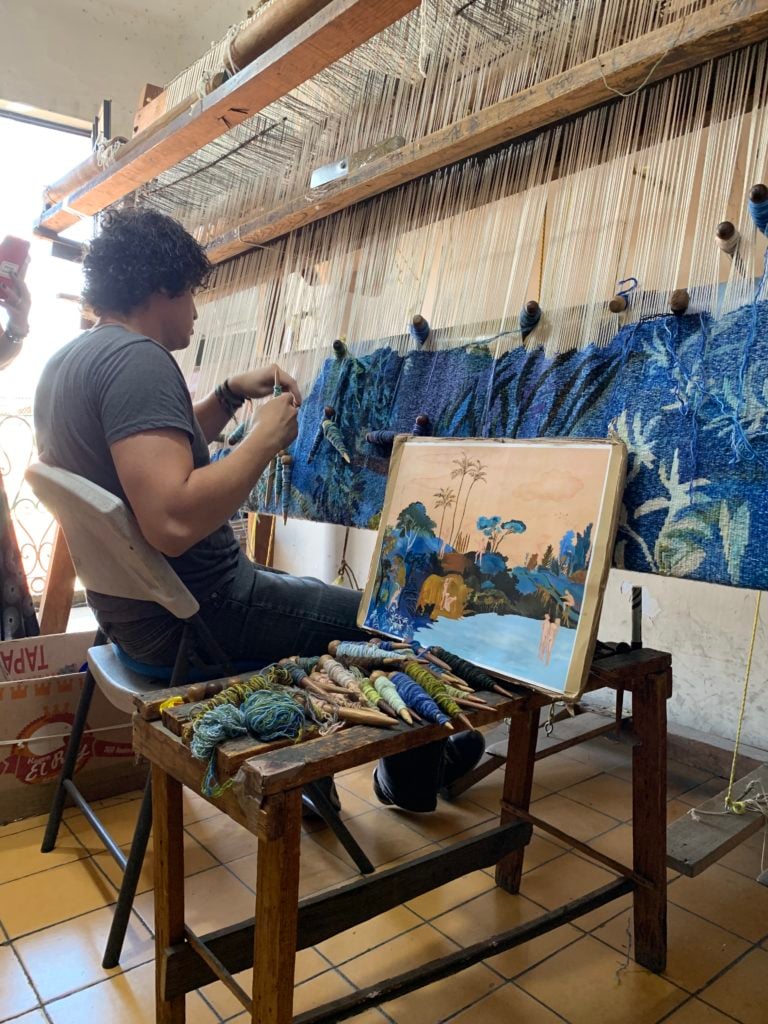
Taller Mexicano de Gobelinos at a tapestry workshop in Guadalajara. Photo by Joey Lico.
And where have you taken your members recently?
We did a trip with 18 people in early June to Guadalajara. Mexico City has a lot of credibility as a major art hub, but I wanted to show our members how important Guadalajara is, not just to the Mexican art scene, but also to the contemporary art scene, globally.
There are so many incredible artists’ studios there. We had a full itinerary, from Thursday to Sunday, visiting artists including Jose Dávila; Gabriel Rico, who is representing Mexico in the current Venice Biennale; and Cynthia Guttierez, who represented Mexico in the last biennale.
There are also two incredible fabricators who are based in Guadalajara, Taller Mexicano de Gobelinos and Cerámica Suro, who work directly with contemporary artists such as Pae White, John Currin, and Walead Beshty.
Taller Mexicano de Gobelinos is one of the only traditional tapestry makers left in the world. They use a very old method that involves several different colors of yarn to weave these beautiful tapestries for many artists who we know and love. And pretty much anyone who does ceramics works with Cerámica Suro.
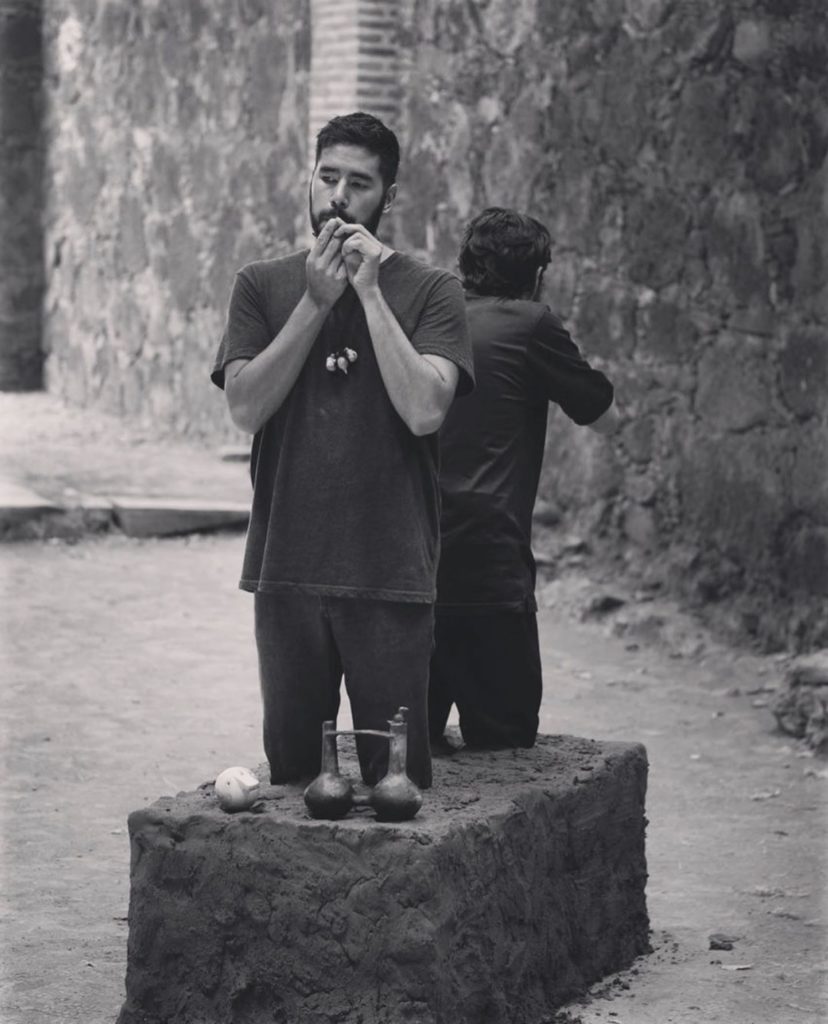
An Emanuel Tovar performance for the Cultivist at the island of Mezcala outside Guadalajara. Photo by Joey Lico.
What was the best, most unforgettable part of that trip?
The Cultivist commissioned a private performance from Emanuel Tovar on the island of Mezcala. It was a special moment.
And then we did a studio visit with Jorge Mendez Blake. I love his work and he was so generous with us. We wound up having sunset cocktails on his rooftop. We also had a dinner with Eduardo Sarabia on his ceramic-ware, which was unlike any other experience that I could possibly recreate.
And from Mexico, you flew to the other side of the world, right?
From there, I went back to the Sharjah Biennial, which is quite far from Guadalajara. I was only there for two-and-a-half days, which is crazy because it’s a 17-and-a-half hour flight—but that’s my life. I’m very lucky if I can be in a place for more than a few days. I had been there in March, but this year’s presentation was exceptional, and I wanted to do more research on some of the exhibitions I’d seen.
There’s also a wonderful foundation there called the Barjeel Art Foundation. They have a number of paintings by this Palestinian painter, Asim Abu-Shakra. His story is quite sad. He was looking for an apartment in Tel Aviv and no one would rent him one because he was Palestinian. He started living in an attic, but it was rat-infested and filled with toxins, and he wound up dying at the age of 28. But one of the most beautiful paintings I’ve ever seen is of the view from his window where he lived. It’s quite haunting, especially when you learn the story behind it.
When you think about what’s happening now in the world, it’s a reminder of how important it is to treat everyone with humanity, regardless of their background.
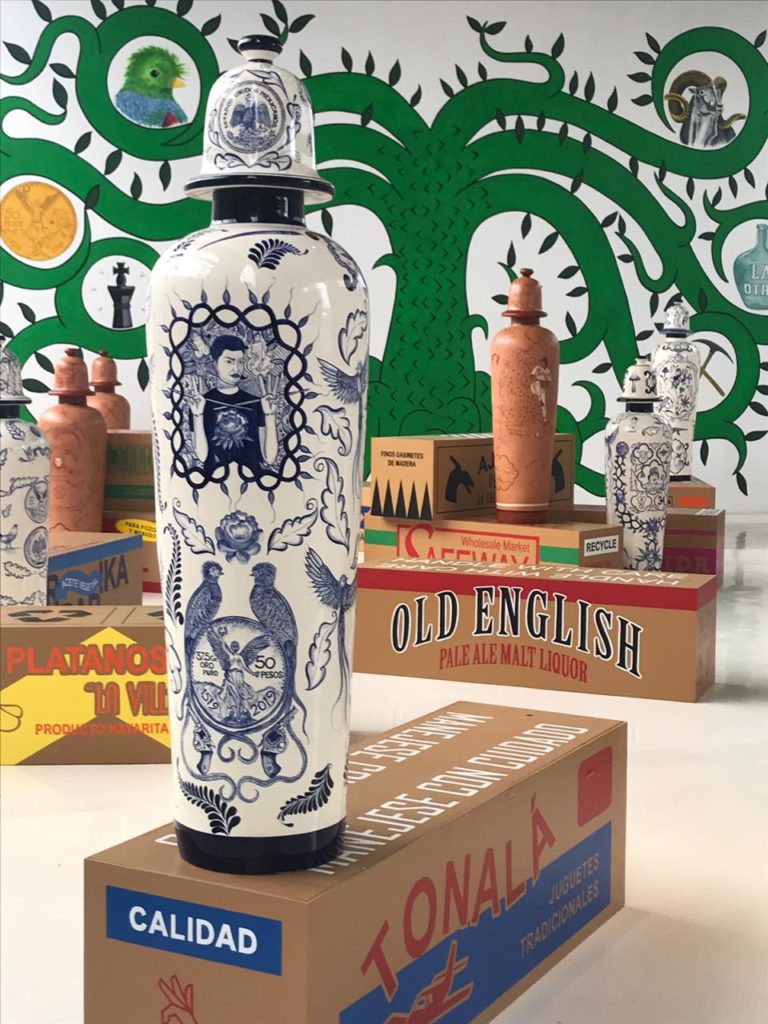
Ceramics by Eduardo Sarabia in his exhibition in Mexico City. Photo by Joey Lico.
As a woman traveling in Sharjah, did you feel welcome?
The Emirates do have a reputation for being quite conservative, but Sharjah is quite open. It felt very Western outside of the no-alcohol thing. I didn’t have any issues, and the women there seemed very comfortable and open, and were often directors of the museums. But Sharjah is a major city, and my experience is colored by being in the art world, which is typically much more progressive.
Do you often encounter great art in unexpected places?
After Sharjah, I was planning a girls’ trip to Sonoma and one of my closet friends was like, “We have to go to this vineyard, they have an art collection!” It’s called the Donum Estate, and it houses a massive public art collection throughout the vineyard.
We did our tasting and then we went on these ATVs around the grounds to see the sculptures. There was work by Anselm Kiefer, Lynda Benglis, Keith Haring, Fernando Botero, Mark Manders, the entire zodiac from Ai Weiwei and an incredible Louise Bourgeois spider.
It’s an embarrassment of riches—the perfect marriage of enjoying really wonderful wine and being surrounded by incredible art. I was so impressed by it that we’re going to do an event with them for Cultivist members.
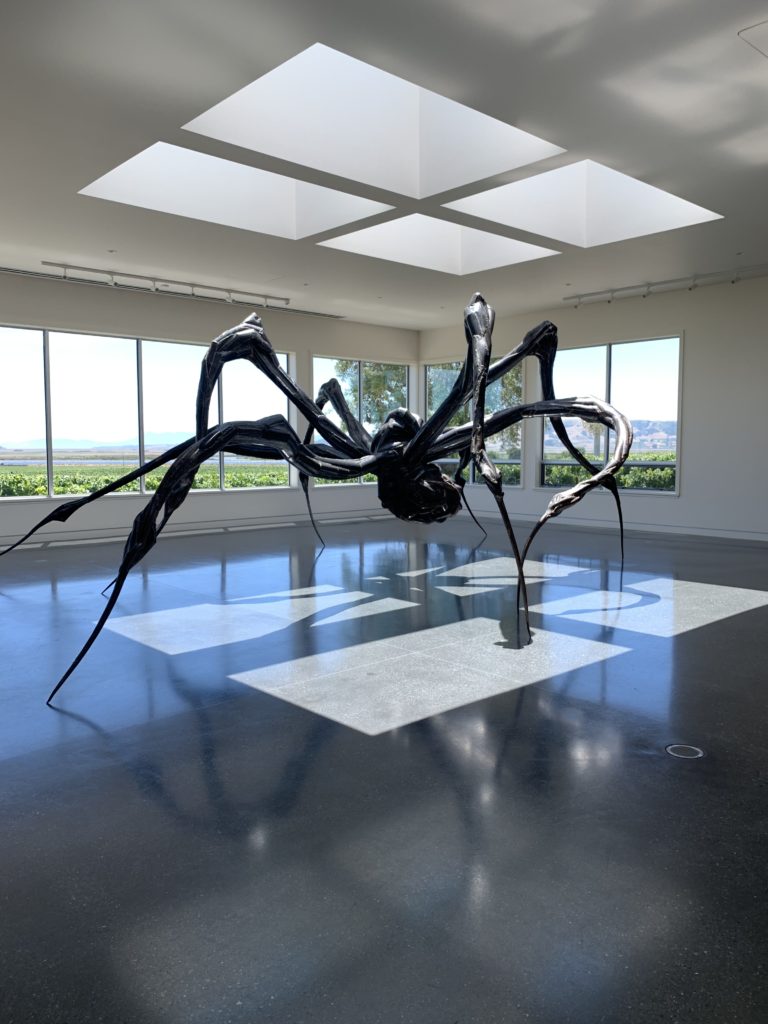
A Louise Bourgeois spider at the Donum Estate winery in Sonoma, California. Photo by Joey Lico.
Is it ever hard to keep up with your busy schedule?
It sounds really great, and I’m so lucky that I get to travel and see so much amazing art.
But there’s a downside to it. I’m exhausted. I have no idea what time zone I’m in. And I think my right shoulder is permanently damaged from lifting my carry-on up into the overhead bin once or twice a week.
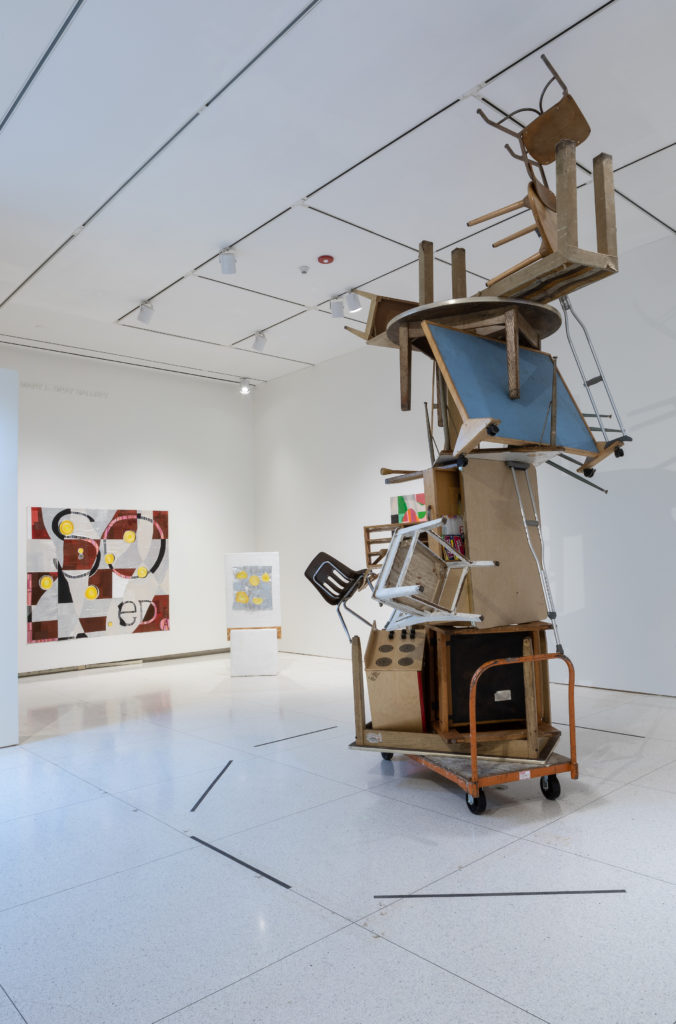
Installation view of “Cross Currents/Intercambio Cultural” at the Smart Museum of Art. Photo by Joey Lico.
What are you looking for in an art destination?
I do whatever I can to support and highlight artists from Latin America—Mexico in particular, because it is such a rich epicenter for art, creativity, design, cuisine, and culture. I went to Mexico City to see a show of ceramics at the Museo Universitario del Chopo by Eduardo Sarabia, done in the traditional Talavera style that is indigenous to the country. Sarabia is Mexican-American, and his work has to do with border politics. It’s always been relevant, but, every day, it gets more and more relevant.
I went to Chicago, for an exhibition at the Smart Museum called “Cross Currents/Intercambio Cultural,” looking at issues of Latinx identity and how it manifests in artists’ practices. Chicago did an exchange with Havana, Cuba, with artists from both cities, and the exhibition is based on the research they conducted. The show has three artists I love: Edra Soto, Harold Mendez, and Alberto Aguilar . The curator did an amazing job of finding the spines of two cities—in two very different countries—that are actually dealing with and looking at very similar things in their questions about identity and intercontinental relationships.
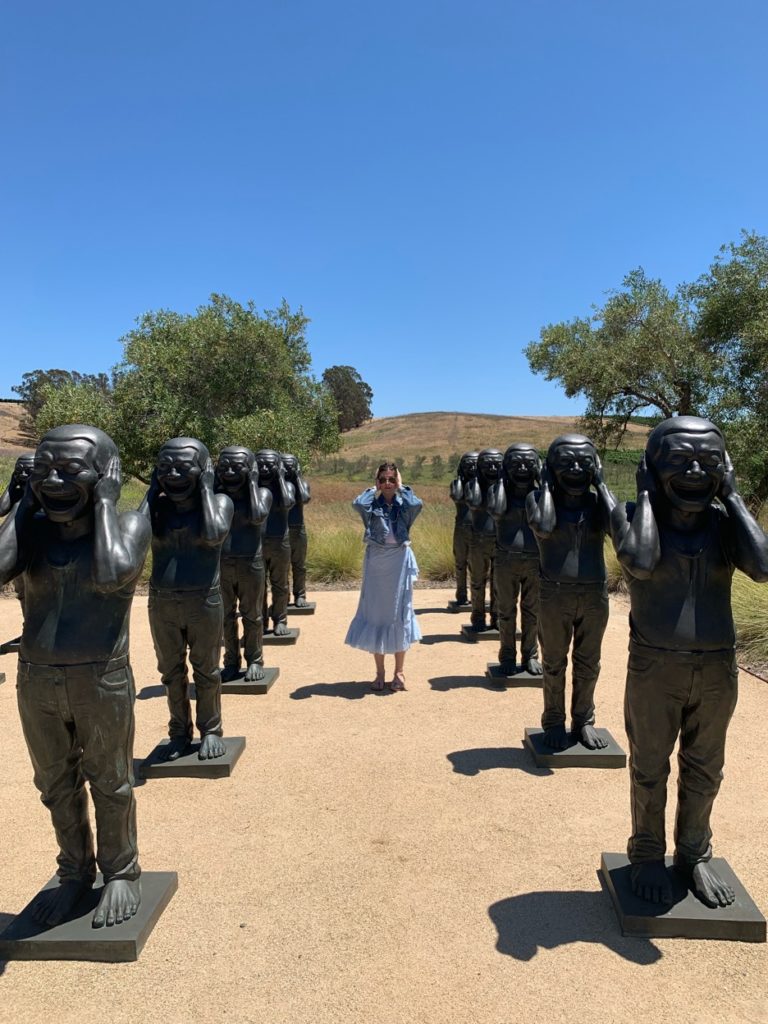
Lico with a work by Yue Minjun at the Donum Estate vineyard. Photo courtesy of Joey Lico.
What kind of advice would you give to someone interested in taking an art-themed trip?
Make your dinner reservations in advance! That sounds very strange, but if I’m traveling for an art fair, I’m looking at massive amounts of art, and I’m usually not eating. Being sure to have dinner is a wonderful way to make sure you have the energy to keep looking. During Art Basel Miami, I have a standing reservation for six people at a restaurant every night, and I use it about 80 percent of the time.
In terms of choosing a destination, try anything that’s piquing your curiosity and is also buoyed by a culture that you’re interested in learning more about. So if you’re a really big fan of, say, Takashi Murakami, and he has show in Atlanta, where you’ve never been, maybe that’s a good time to explore that city.
You don’t have to go where everyone else is going. You’ll see that on Instagram, covered ad nauseam. If you can find something sparking your own interest, follow it and see what you think.